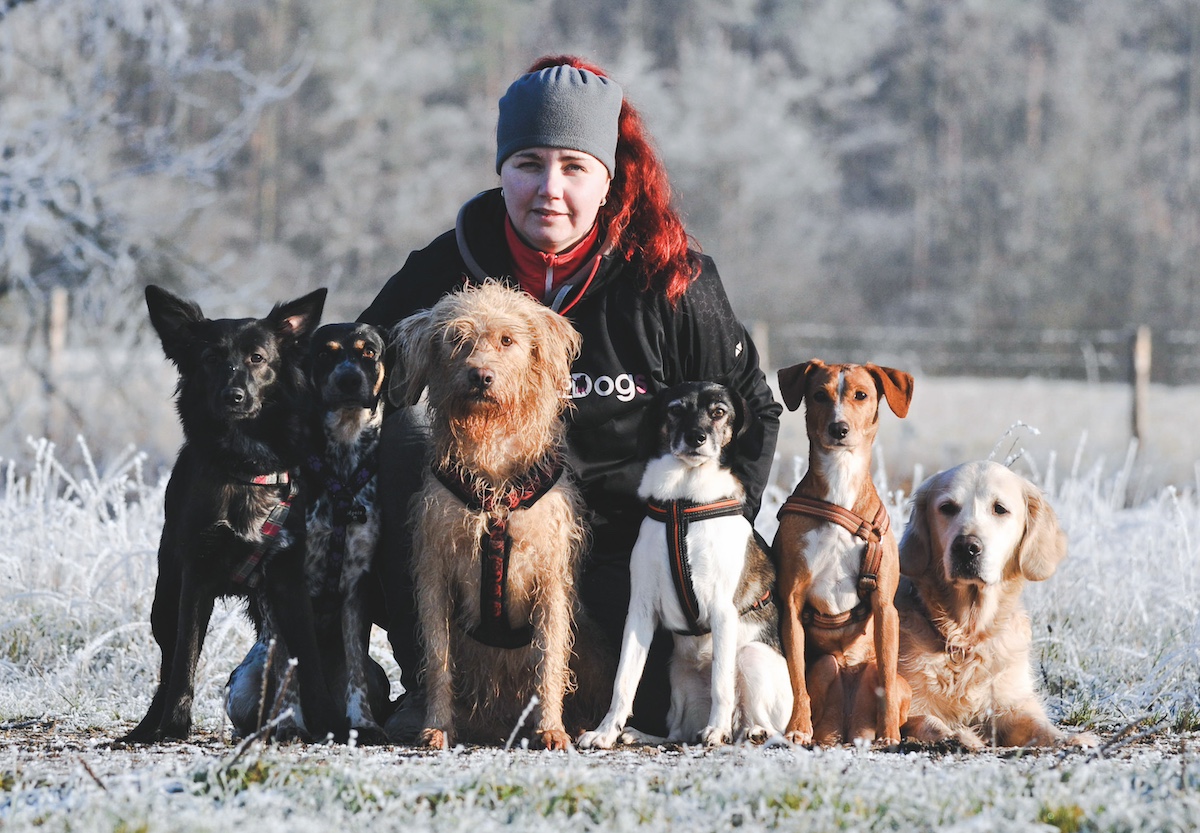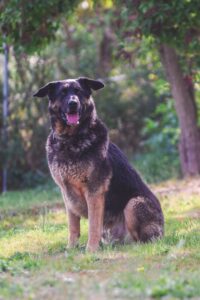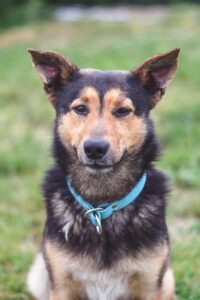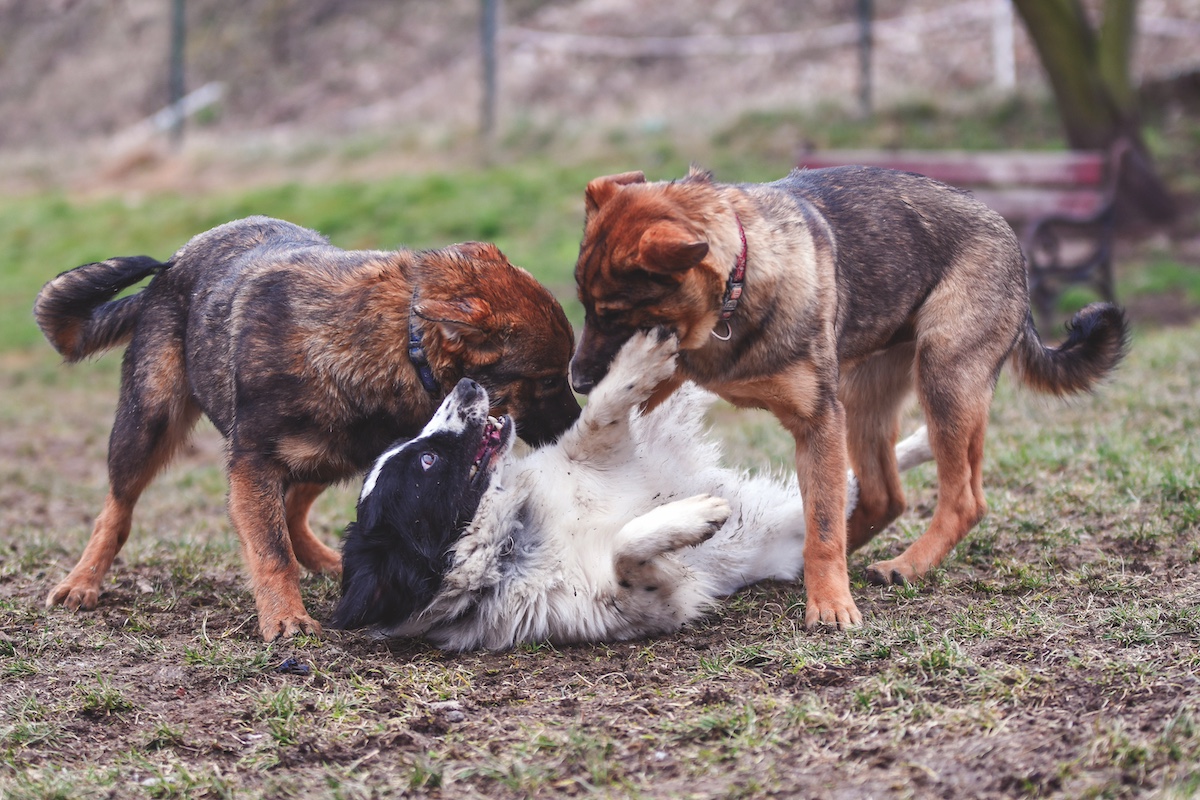
Bára Hošková, Founder of ForDogs rescue
Text: Martina Hošková; Photo: Archive
If you are like most Czech people, then you must love our best friends – dogs, of course. You can find our furry babies in almost every other household, and usually they live happily as full members of a family. For those who don’t, luckily there are still good people out there who give them hope to escape bad living conditions, and start a new life in a newly-found loving home. This Christmas time, we have decided to introduce you to the ForDogs rescue, with the hope of supporting their efforts through people’s loving hearts and goodwill.
A shelter or rescue?
If you are interested in supporting or adopting a dog from either a shelter or a rescue, you probably want to know the differences between the two. Or maybe you didn’t even know there was a difference. The words “shelter” and “rescue” might seem interchangeable, but they’re actually not.

Buddy, in the rescue for almost four years before he found a new home
Both dog shelters and dog rescues do the same general thing – which is rescue dogs, and try to find them good permanent homes – so what is the difference? To find out, we asked Bára Hošková, the founder of the ForDogs rescue in Svárov, near Prague. “A shelter is funded by city or state tax money,” Bára told us. “It is the first stop for a dog that has been found as a stray. A rescue, on the other hand, is a nonprofit entity run by volunteers in their free time and funded by donations. Rescues like us will take dogs who typically are neglected or even abused by their owners, or those whose loving human parent has passed away okay, we will order a neuter, and, if necessary, vaccinations. Everything is handled individually, according to the specific dog and their physical and mental condition. If any problems are detected, the dog undergoes further necessary examinations, and we proceed according to the veterinarians’ recommendations.”
Of course, different dogs have different biological needs and characters. Therefore, in the ForDogs rescue, they strive to get to know each dog very well in order to be able to find the optimal dog- household match every time. The rescued dogs are also being socialized and given some basic training here (like walking on a leash), before being offered up for adoption. Only when everything is alright, an ad is published, and new owners may start flocking.
The moment someone shows interest in a particular dog, they are invited to a non-binding personal visit where everything can be discussed. They may even take the dog for a walk, if possible. On their first visit, and there is nobody to take care of them now. Quite regularly, we also accept pregnant dog moms who later give birth to several baby dogs in our rescue.”
What such a dog’s journey looks like The ForDogs rescue helps dogs in need, who usually come here directly from their previous owners through a gift contract. Mostly, they are dogs from underprivileged families, whose owners were now deceased, or are semi-wild dogs from overgrown packs. The individual condition of the dog differs depending on where they come from. Many are fearful, unsocialized, full of fleas, and suffering from health problems. However, a dog may also end up here just because the owner realized they don’t have time for them. The ForDogs rescue thus becomes a temporary home for newborn puppies, young dogs, as well as old senior dogs. Everything here is organized with one final goal: find the dog a new loving home, and get them adopted.

Olda, 4 years old, waiting for a new home
“The process from receiving a dog to their adoption varies in length, depending on the condition in which the dog arrives,” explains Bára Hošková. “Usually, if it is not acute, we let the dog lie down for a day or two, and then take them to the vet for an initial checkup: we have their blood taken, their heartbeat listened to, and their whole body checked. If everything is the potential new owners go home still without the dog, but full of impressions and information. They then have the space at home to think everything over with no rush, and make decisions based not only on emotions. If neither ForDogs nor the people interested find any problems, they will take the dog home with them on the next visit. However, this is not the end of the story for the rescue volunteers – they want to know how the adoptee is doing, if the new owners have any problems, and if ForDogs can help in any way. This year, they saw over 60 dogs off to their new homes, a total of approximately 500 dogs during their entire period of operation.

From left: Jed, Vincek, and J.T. playing in the rescue; Jed and Vincek are still waiting for their new homes
How can you help?
As we explained above, dog rescues like ForDogs are volunteer associations, where people work for free in their free time and have to secure the necessary funds themselves as well. They are not funded by the state. All of us who have ever had a dog ourselves can clearly imagine how expensive the care is – and here we are not talking about one healthy dog. “Our budget depends on the number of dogs we receive during the year, and on their condition. The biggest expense is veterinary costs,” says Bára Hošková, and continues: “If the dog has no health problems, the average veterinary cost is about CZK 5,000 per dog. But if he has a medical problem, the amount can easily climb to tens of thousands per dog. Another big expense is the purchase of equipment to accommodate the dogs and increase their comfort. We must always think carefully about how many and what kind of dogs we can accept and take care of.”
So, what can we, the public, do to ensure that every dog has a home? Be responsible. Think before getting a dog. Consider it a commitment for the next 15 years. Do not breed dogs. Don’t be afraid to adopt a rescue dog – they are often absolutely amazing dogs who were just unlucky in life. Last, but not least: most rescues like ForDogs are grateful for any material and financial aid, in any amount.
ForDogs is a dog rescue in Svárov, near Prague, founded in 2016, whose goal is to find new loving homes for dogs in need. It is run on a volunteer basis, with no funds from the state.
for dogs in need. It is run on a volunteer basis, with no funds from the state.
You can contribute to their transparent bank account number 3500035000/2010.
Heartful thanks from all the dogs!

